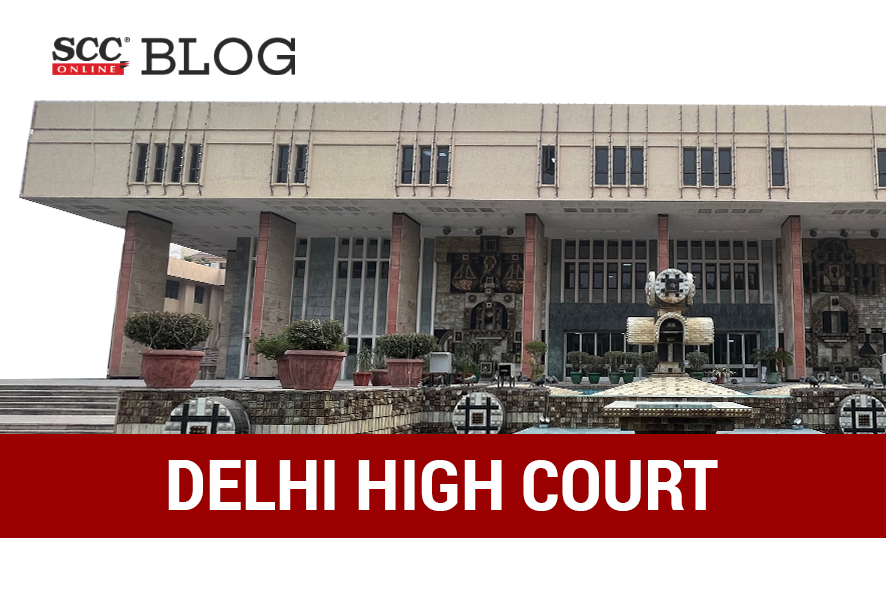Delhi High Court: In a petition filed by Yassh Deep Builders (petitioner), a limited liability Partnership, under Section 9 of the Arbitration & Conciliation Act, 1996, seeking direction to the owner of the land (‘respondent 1’), to maintain status quo with respect to the land forming part of the subject matter under litigation. It further seeks to restrain respondent 1 from directly or indirectly, selling, transferring, alienating or creating any third -party rights in any manner whatsoever with respect to the land, Chandra Dhari Singh, J., held that where the agreement already stood terminated, without a challenge to the same, there remains no scope under Section 9 of the Arbitration Act or Section 10 of the Specific Relief Act.
Background:
Respondent 1 is the owner of the land admeasuring 11.79375 acres, situated in Haryana. The petitioner entered into a Collaboration Agreement with the respondent 1 for the development of a land whereby the petitioner agreed to develop the project over the Collaboration Property at its own costs and expenses for a consideration to be received within the stipulated period. Under the terms of the Collaboration Agreement, the petitioner obliged to apply for license/ approvals/ permits/ certification etc. for the development of the property in a timely and orderly manner.
A General Power of Attorney was executed in favour of the petitioner to apply and obtain license/sanction for converting the property from its agricultural use to any other suitable use and to get the plan sanctioned from the concerned authority for developing a residential complex at the said property. The petitioner filed an application before the Directorate of the Town and Country Planning, Haryana for the grant of license. It is the respondents’ case that in order to help the petitioner and to cure the default of Rs. 1,46,50,000/-, which arose due to cheque bounce due to ‘insufficient funds’, the respondent 1 agreed to reduce the development area as a result of which First Supplementary Collaboration Agreement was executed.
However, the Collaboration Agreement stood terminated by respondent 1 which according to the petitioner was never communicated. It is the petitioner’s case that on receiving knowledge regarding the property for being put for sale, the petitioner made enquiry when it was confronted with the Second Supplementary Collaboration Agreement. As per the petitioner, there was no such Second Supplementary Collaboration Agreement. Thus, the present petition was filed apprehending that respondents 1 and 2 (Respondent 2 is the erstwhile partner of the petitioner firm) would create third party rights in the Collaboration Property to defeat the rights of the petitioner.
Analysis and Observations:
The Court noted that the petitioner invoked Section 10 of the Specific Relief Act, 1963 to submit that it was entitled to specific performance of the contract, that is, the Collaboration Agreement. The relief of specific performance is an equitable relief, and the courts no longer have discretionary powers under the Specific Relief Act while granting such a relief. The court may be required to be satisfied on the continuous readiness and willingness tests before granting the relief of specific performance. While readiness means the capacity of the petitioner to perform the contract, willingness relates to the conduct of the petitioner.
The Court observed that owing to failure to obtain the licence within reasonable time period and its adversely affected and worsening financial condition, the petitioner has failed to prove its readiness and willingness to perform the essential terms of the Collaboration Agreement.
The Court further opined that the Collaboration Agreement is a commercial transaction between the private parties and hence the same by its very nature is determinable, even if there is termination clause in the Collaboration Agreement. For transfer of all development rights of the scheduled property along with physical possession to the petitioner, two conditions had to be met. Firstly, the payment of the non-refundable earnest money by the petitioner and secondly, the allocation of plotted area to respondent 1. While the first condition was fulfilled by the petitioner, the second condition was not fulfilled for lack of licence, thus, the question of any transfer of rights or physical possession does not arise.
Interestingly, the Court remarked that the Collaboration Agreement being determinable in nature is not applicable in specific performance in view of the statutory bar contained in Section 14(d) of the Specific Relief Act, 1963. Thus, in terms of Section 14(d) of the Specific Relief Act, 1963, no injunction can be granted to prevent breach of the contract, the performance of which cannot be enforced .
The Court concluded that if the petitioner is aggrieved by the letter of termination of the contract and is advised to challenge the validity thereof the petitioner can always invoke the arbitration clause to claim damages, if any, suffered by the petitioner. It is not open to this Court to restore the contract under Section 9 which is meant only for the sole purpose of preserving and maintaining the property in dispute and cannot be used to enforce the specific performance of a contract.
Thus, the Court held that where the petitioner is statutorily barred from seeking specific performance of the Collaboration Agreement, the petitioner cannot be entitled to claim interim relief under Section 9 of the Act.
[Yassh Deep Builders v Sushil Kumar Singh, 2023 SCC OnLine Del 1499, decided on 14-03-2023]
Advocates who appeared in this case :
Mr. Rajiv Nayar, Senior Advocate with Mr. Rishi Agrawal, Mr. Karan Luthra, Ms. Aarushi Tiku, Mr. Shravan Niranjan and Mr. Satyam Agarwal, Advocates for the Petitioner;
Mr. Neeraj Malhotra, Senior Advocate with Mr. Rajiv Virmani, Mr. Gaurav Jain, Mr. Atul Malhotra and Mr. Amit Kumar and Mr. Anuj Malhotra and Reda Tayyaba, Advocates for the Respondent 1;
Ms. Radhika Bishwajit Dubey, Advocate for the Respondent 2.







